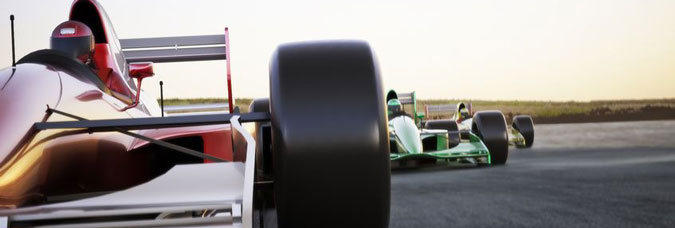
When we think of the technical developments in F1 and motorsport generally, we can all probably think of an area in the automotive industry where those developments have had an impact. But do you ever think about what or who else benefits of those developments?
If I was to say that the care of premature babies has been impacted by motorsport technical developments you’d probably wonder how. What about supermarkets? How could they possibly benefit from the motorsport industry?
These are only a couple of examples of where motorsport innovation is being used to solve challenges in other industrial sectors.
The research into the effects of movement on the human body has been used in the healthcare sector when dealing with premature babies. Advanced equipment used in motorsport is being attached to incubators to provide vital data on babies as they are transferred from one hospital to another. Speed of transfer is critical, but it also has a huge effect vital signs such as heart rate and blood pressure, which can put a baby at increased risk of brain damage. Not only is the collection of the data helping assess the risk to the infant, but it will also help future technical developments in incubator and ambulance design, making those essential journeys less of a risk.
Williams Advanced Engineering also collaborated with Aerofoil Energy to develop an aerodynamic device that can reduce the energy used by refrigerators in supermarkets. The convenience of the open fronted refrigerators means that supermarkets not only consume huge amounts of energy but also lose some of that cold air into the aisles making it a bit more uncomfortable for shoppers.
The aerodynamic design and testing in F1 has been used to design a part that can be retrofitted onto refrigerators and that will direct the cool air down and back into the refrigerator rather than out into the aisles. Supermarkets will reduce their energy usage, and so improve their carbon footprint. In addition, the shopping experience I those areas will be less chilly for customers. A number of supermarkets have been testing the technology and the IET report that the initial trials are showing an average energy saving of 20%.
Williams have also worked with Nissan Europe and the European consortium NETfficient to demonstrate how vehicle battery storage technology from cars a can be repurposed to help power buildings alongside solar photovoltaic energy.
This is just the tip of the iceberg with F1 technology increasingly being used in the aerospace and defence sectors as well as others. The wider engineering and technology industries stand to benefit if this sort of horizontal innovation increases, which can only be good for industry.
So vast is the potential impact of the innovation in motorsport that a collaboration has been set up between the Institution of Engineering and Technology (IET) and the Motorsport Industry Association (MIA). It aims to host knowledge sharing events highlighting UK motorsport as an example of what could be achieved more widely by sharing knowledge, processes and technology.
Image Copyright: scottff72 / 123RF Stock Photo
This site uses Akismet to reduce spam. Learn how your comment data is processed.


 Mail:
Mail: 




Leave a Comments